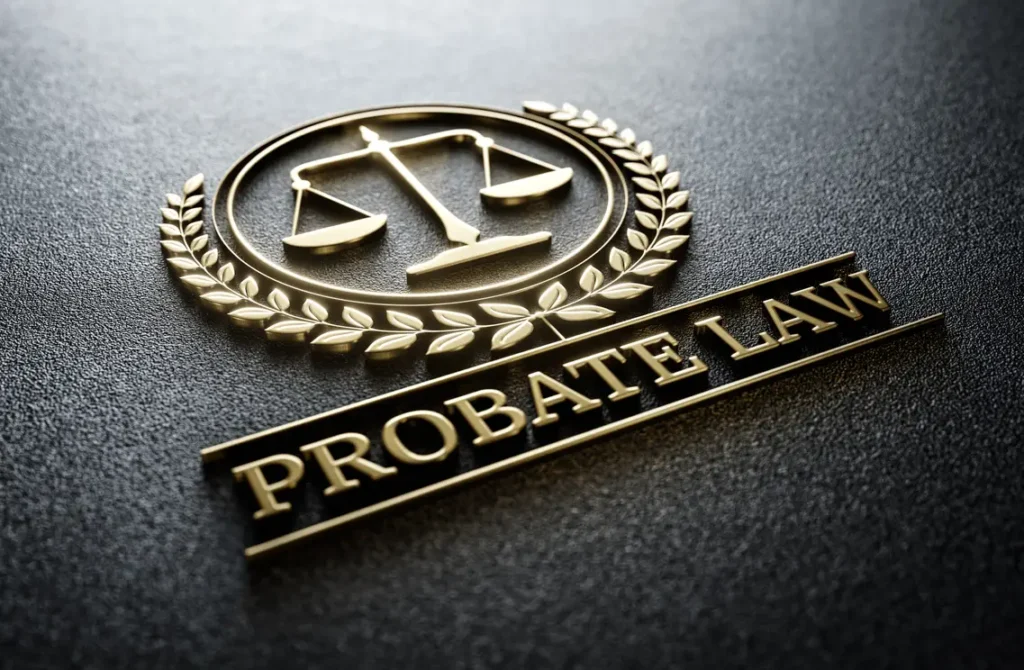
In Estate of Wall[3] (“Wall”), a California Appellate Court affirmed that in a probate action concerning the assets of a decedent, the “title presumption” takes priority over the “community property presumption.”[4] In so doing, the Wall court examined the complex history between these two legal presumptions, discussing two prior California Supreme Court decisions that held the opposite was true (i.e., that the community property presumption supersedes the title presumption) under different circumstances, and explained why, in the probate context involving a decedent’s assets, the result should be different.
What Are Examples of a Form of Title Presumption Conflicting With a Community Property Presumption in California?
In California, the form of title presumption and community property presumption may conflict when property that was acquired during marriage that was not from a gift or inheritance (and therefore should have been presumed community property) is titled in the name of only one spouse. Another instance in which the two presumptions might conflict is when property is titled in the name of both spouses as joint tenants with a right of survivorship. In the latter example, the property in question would be considered community property while the spouses are alive, but once one spouse dies, the law of joint tenancy would apply, and the decedent’s entire share would go to their surviving spouse.

A Closer Look Into the Dispute Over the Character of Property in Estate of Wall
The facts of Wall are as follows: Decedent Benny and wife Cindy were married in 2008, and it was the second marriage for both. Benny felt he had been subjected to financial exploitation at the hands of his first wife, so Cindy complied when Benny asked to keep their assets separate.
In 2010, Benny bought a house in which he and Cindy lived until Benny’s death in 2016, and which was the subject of the probate dispute. The house was purchased during the marriage, but with a $99,205.83 down payment derived solely from Benny’s separate property retirement income, which he had earned prior to his marriage to Cindy. Benny took title as, “Benny M. Wall, a married man as his sole and separate property.” During the marriage, Benny made all mortgage payments from his separate property sources (pension and social security). He never added Cindy to the title.
However, there were some facts in favor of the character of property being community property, including: Cindy writing a check for $3,500 in 2008 to Benny “to contribute to a future down payment,” Cindy contributing to home improvements over the years, Cindy and Benny previously applying for a purchase loan on the property as joint borrowers[5], the mortgage broker’s testimony that he believed Cindy and Benny were purchasing the house jointly, and Cindy and Benny splitting household expenses and rental income from tenants. Thus, when Benny died intestate in 2016, Cindy petitioned the probate court to determine that the house was community property, claiming the community property presumption controlled the character of property. Benny’s adult children objected to this petition, claiming that the house was Benny’s separate property because the form of title presumption controlled; therefore they had an entitlement to this asset pursuant to the laws of intestacy.[6]
Court Looks to Prior Decisions to Determine Which Legal Presumption Should Dictate the Character of Property in a Probate Matter
In determining the priority of the community property versus the form of title presumption, the court first looked to two prior California Supreme Court decisions on this issue: In re Marriage of Valli (2014) 58 Cal.4th 1396(“Valli”) and In re Brace (2020) 9 Cal.5th 903 (“Brace”) Valli involved a dissolution action between spouses and an insurance policy that was purchased with community funds but was solely in the wife’s name, and sought to answer whether such a policy was community or separate property. In this context, the Valli court held that the policy should be considered community property because the community property presumption supersedes the form of title presumption; however, the court limited its holding to actions between spouses.[7]
Several years later, the Brace court considered whether the community property or form of title presumption was superior in a bankruptcy action involving spouses on the one hand and the bankruptcy trustee on the other. It expanded the holding of Valli by holding that the community property presumption was superior to the form of title presumption in actions involving third parties, and was therefore not limited only to actions between the spouses. However, Brace opined that this result would likely not apply to actions after death involving the assets of a decedent, reasoning that, for example, a property held in joint tenancy at the death of a joint tenant requires the form of title presumption to control in order for the asset to pass in full to the surviving joint tenant.[8]
Wall Court Determines Which Legal Presumption Should Prevail in a Probate Dispute Over the Character of Property
The Wall court agreed with Brace and confirmed that in the probate context, when there is a dispute over the character of property, the property’s form of title controls at death. Thus, at death, the form of title presumption supersedes the presumption that property acquired during a marriage is community property. So, can separate property become community property? In this case, the answer was yes. Benny’s house would have been considered his separate property were it not for the form of title presumption having been rebutted by strong evidence of the decedent’s undue influence in the real estate transaction over his spouse.[9]
The Takeaway: The Form of Title Presumption in California Reigns Over the Community Property Presumption After Death
In the probate context, an asset’s form of title controls at death. And although this holding is directly contrary to the rule that applies during the joint lifetimes of the spouses (i.e., where the community property presumption controls), this holding is consistent with past legal precedent on this issue. Given the complexity of these matters and the possibility for variable results depending upon timing and context, it is imperative for couples to meet with a qualified estate planning attorney to ensure the correct post-death distribution of their assets and for surviving spouses to work with a probate attorney following their spouse’s death to enforce their inheritance rights.
Still Have Questions Surrounding Disputes Over the Character of Property After Death? Keystone’s Probate Attorneys Are Standing by to Help
Disputes over the character of property belonging to a decedent can be difficult to navigate without help from an experienced probate attorney. Keystone’s probate attorneys regularly work on property dispute matters and have an impressive track record of resolving them favorably for their clients. Discuss the specifics of your case with a qualified probate attorney today by requesting a free consultation.

[1] Fam. C. § 760.
[2] Evid. C. §662.
[3] 68 Cal.App.5th 168 (2021).
[4] Evid. C. §662.
[5] This loan was denied for Cindy, at which time Benny applied and was approved as sole borrower. There was also testimony that Benny had promised to later add Cindy to title on this property but did not, which the court found persuasive in its analysis of whether Benny had committed undue influence in this real estate transaction, as set forth in the unpublished portion of this opinion. Wall at 171, 176-77.
[6] See Prob C. § 6401.
[7] Valli at 1406-08.
[8] Brace at 931-32. If a property held in joint tenancy was treated as community property after the death of the first joint tenant, then the surviving joint tenant would only be automatically entitled to a one-half interest in the property, not the entire interest, thereby defeating the purpose of a joint tenancy.
[9] The Wall court’s discussion of the undue influence presumption under Family Code 721, was set forth in an unpublished portion of the court’s opinion.











